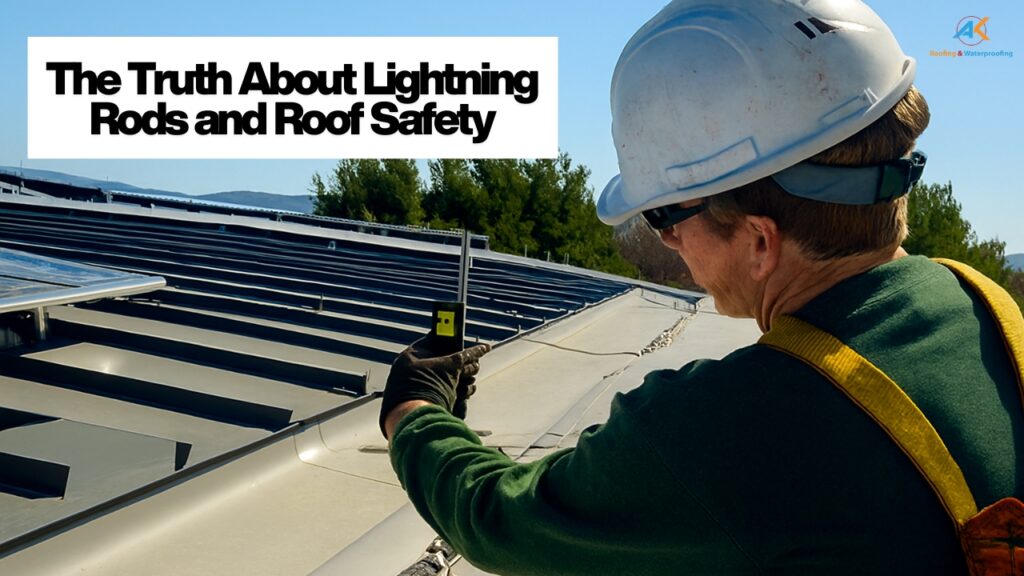Whenever I sit down with homeowners who are planning a roof replacement, one question almost always comes up: “If I choose a metal roof, won’t it attract lightning?” It’s such a common concern that I’ve lost count of how many times I’ve explained it. And I completely understand why people worry. After all, we’ve all grown up with the idea that metal and electricity are best kept apart.
But here’s the reality: a metal roof does not increase your chances of a lightning strike. Lightning doesn’t scan the landscape looking for shiny surfaces to hit. Instead, it’s influenced by height, location, and surroundings. The funny thing is, in some cases, having a metal roof can actually make your home safer if lightning ever does strike.
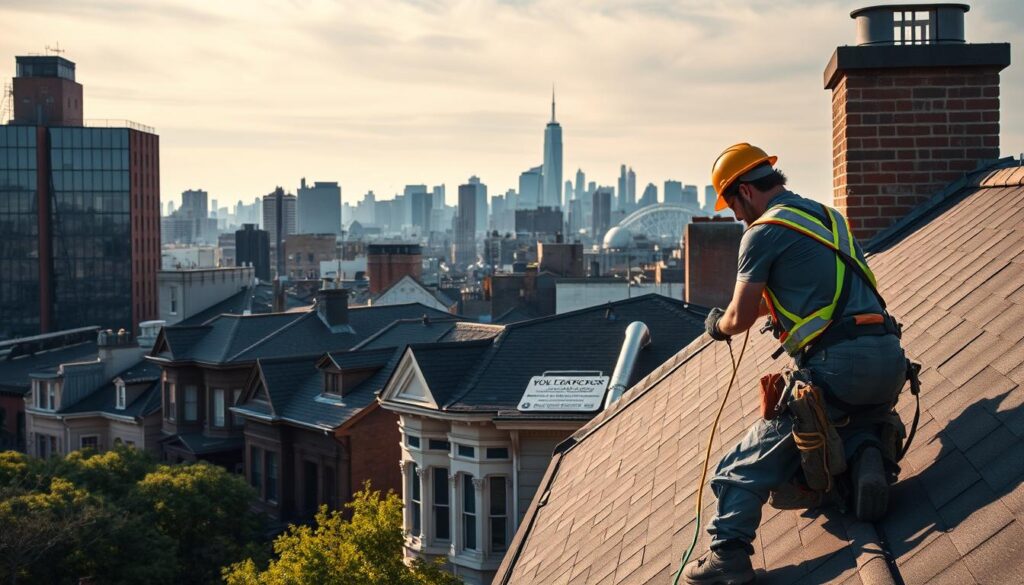
In this blog, let me make the answer clear: do metal roofs attract lightning? I’ll share what I’ve learned from years of working with clients, clearing up myths, and explaining the real science behind lightning and roofing. By the end, you’ll see why a metal roof isn’t something to fear if it’s in the hands of a trustworthy roofing contractor in Brooklyn. In fact, it could be one of the best choices for protecting your home.
Do Metal Roofs Really Attract Lightning?
Lightning is one of nature’s most powerful forces, but it doesn’t work the way most of us imagine. It doesn’t “look” for metal to strike. Instead, lightning follows the path of least resistance from the storm clouds to the ground.
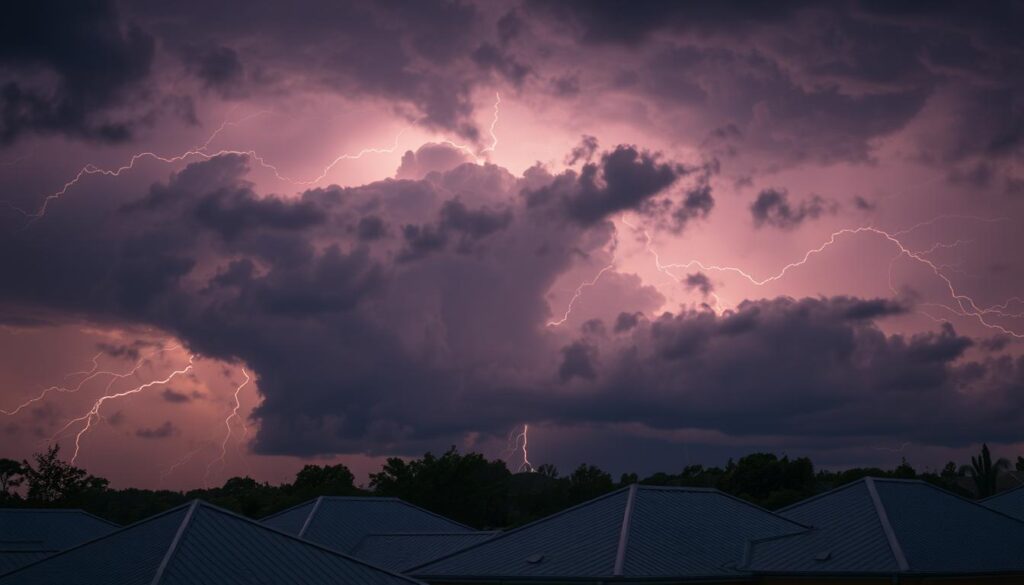
What actually determines where lightning strikes is:
- Height of the structure – Tall buildings or trees are natural lightning targets because their elevated position makes it easier for lightning to connect with the ground.
- Isolation – A single house or farmhouse on a hilltop is more vulnerable since it stands alone, giving lightning fewer competing targets compared to homes in crowded neighborhoods.
- Geography and weather – Regions with frequent thunderstorms or storm-prone climates face naturally higher lightning risks. Regardless of roof type, making location a key factor in strike probability.
The type of roofing material plays almost no role in attracting lightning, whether it’s metal or not. So no, a metal roof doesn’t pull lightning in like a magnet.
How Metal Roofs React When Struck by Lightning
Now, here’s where metal roofs surprise people. If done by a reliable roofing contractor in Brooklyn and lightning does hit your house, a metal roof can actually be safer than other materials. Why?
- Metal conducts electricity. That means it spreads the lightning’s energy quickly across the surface, reducing the risk of concentrated heat damage.
- It doesn’t burn. Unlike wood shingles or even asphalt, metal won’t ignite from the heat of a strike.
- It’s durable. Instead of catching fire, the roof absorbs and disperses the strike, protecting the structure beneath.
I once worked with a homeowner who lived in a rural area with frequent storms. Their neighbor’s shingle roof caught fire from a lightning strike. But their metal roof only showed a small scorch mark. No fire! No major damage! That’s when they realized their choice of roofing material actually saved their home.
The Role of Lightning Rods: Do You Need One?
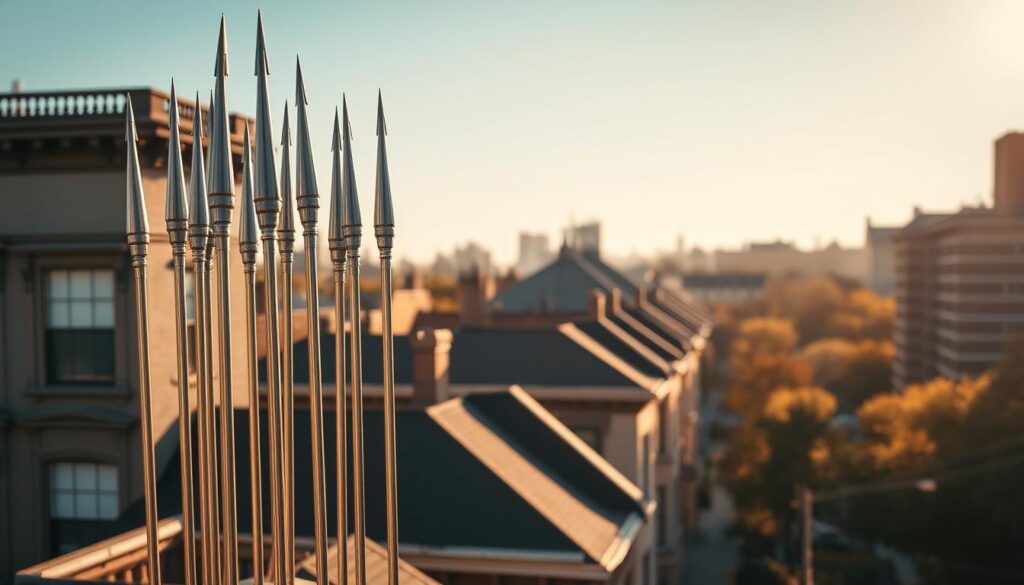
Another big question I hear is: “If I have a metal roof, does that mean I don’t need a lightning rod?” Not exactly.
Lightning rods don’t attract lightning; they redirect it safely into the ground. Think of them like safety valves. If lightning hits, the rod channels the energy away from your house and into the earth.
You should consider lightning rods if:
- Your house is the tallest structure in the area.
- You live in a rural or storm-prone location.
- You have valuable electrical systems or sensitive equipment inside.
For most suburban homes, a properly grounded metal roof is already a big step toward safety, but for extra peace of mind, a lightning protection system is worth considering.
Metal Roof Safety Benefits Beyond Lightning
Even setting lightning aside, metal roofs offer so many safety benefits that I often recommend them to clients:
- Fire resistance: While wood or asphalt can ignite in extreme heat, metal gives your home better protection.
- Storm durability: Metal stands up better against hail, heavy rain, and strong winds compared to most roofing materials.
- Longevity: A properly installed metal roof can last 40–70 years.
- Eco-friendly: Many are made from recycled materials and can be recycled again when replaced.
So when people ask me about lightning, I remind them that they’re also gaining extra layers of safety in other areas too.
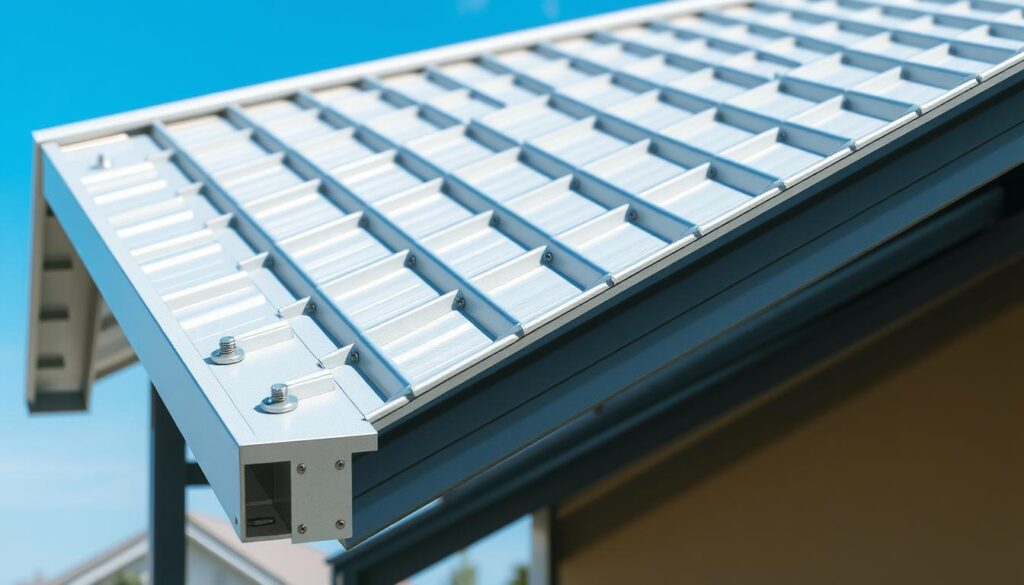
Myths vs. Facts About Lightning and Roofs
Let’s clear up a few of the most common myths I’ve come across in conversations:
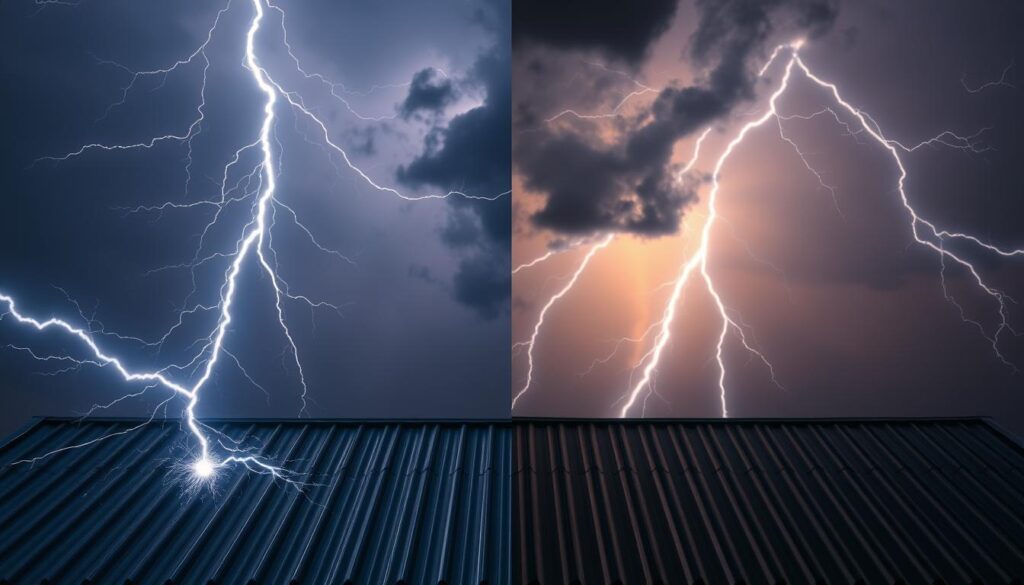
Myth 1: Metal roofs attract lightning.
Many people believe metal roofs act like magnets for lightning.
Fact: Lightning is more influenced by height, isolation, and location than by material. A metal roof doesn’t increase your home’s risk of being struck.
Myth 2: A lightning strike will melt a metal roof.
Homeowners often imagine lightning turning a metal roof into molten steel.
Fact: Metal is highly durable, disperses heat quickly, and won’t melt. Instead, it safely channels energy across its surface, reducing the chance of fire or severe damage.
Myth 3: Only tall buildings get hit.
It’s a common belief that lightning targets only skyscrapers or high towers.
Fact: Lightning can strike any structure, even small houses or sheds in open areas. Height increases the probability, but no building is completely exempt from strikes.
I’ve found that once homeowners hear these facts, their fear of metal roofs fades quickly.
Should You Worry About Living Under a Metal Roof?
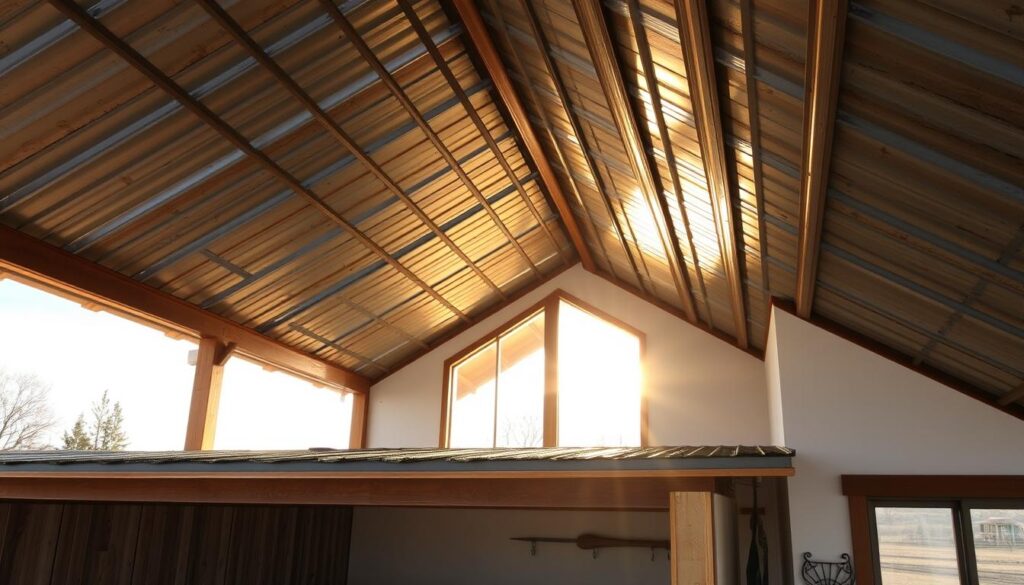
If you’re considering a metal roof but feeling uneasy, here’s the truth: you don’t need to worry.
In fact, many insurance companies actually see metal roofs as a plus. Why? Because they’re more fire-resistant and durable, which lowers risk in the long run.
I’ve worked with families who switched to metal roofing specifically because they lived in lightning-prone areas, and they felt much more secure afterward. Science, safety, and even insurance data all back that decision.
Practical Safety Tips for Homeowners
No matter what type of roof you have, here are some simple steps I often recommend to clients for added safety during storm season:
- Consider professional lightning protection if you live in a storm-heavy region.
- Ensure proper grounding of your home’s electrical system.
- Add surge protection to protect appliances and electronics.
- Schedule regular inspections of your roofing and wiring to catch potential issues early.
- Stay safe indoors during storms. Avoid using wired electronics and keep away from windows.
These habits give homeowners peace of mind, whether their roof is metal or not.
Real-Life Examples and Expert Opinions
| According to the National Fire Protection Association (NFPA), lightning causes over 22,000 fires in the U.S. each year. Interestingly, many of these fires are linked to wood or asphalt roofs, not metal. Source: National Fire Protection Association (NFPA) |
Roofing contractors and electricians I’ve spoken to often agree: while no roof is “lightning-proof,” metal roofs are less likely to ignite and more likely to protect the home structure.
Hearing both science and real-world cases side by side makes the answer clear: metal is not only safe but often the safer choice.
The Ultimate Truth About Metal Roofs and Lightning
So, do metal roofs attract lightning? The Answer is a big no! The material of your roof doesn’t lure lightning strikes. Instead, it’s the height, location, and surroundings of your home that matter most.
But here’s the good news: if lightning ever does strike, a metal roof is one of the best defenses your home can have. It won’t burn, it disperses energy safely, and when paired with a lightning protection system, it makes your house even safer.
Maybe you’ve been hesitating about switching to a metal roof because of lightning fears. Let me assure you, you’re not just safe! You’re protected. But if you still have any confusion about metal roofs and lightning, contact us at AK Roofing 3D, the best roofing contractor in Brooklyn! Let us solve your confusion effectively.

